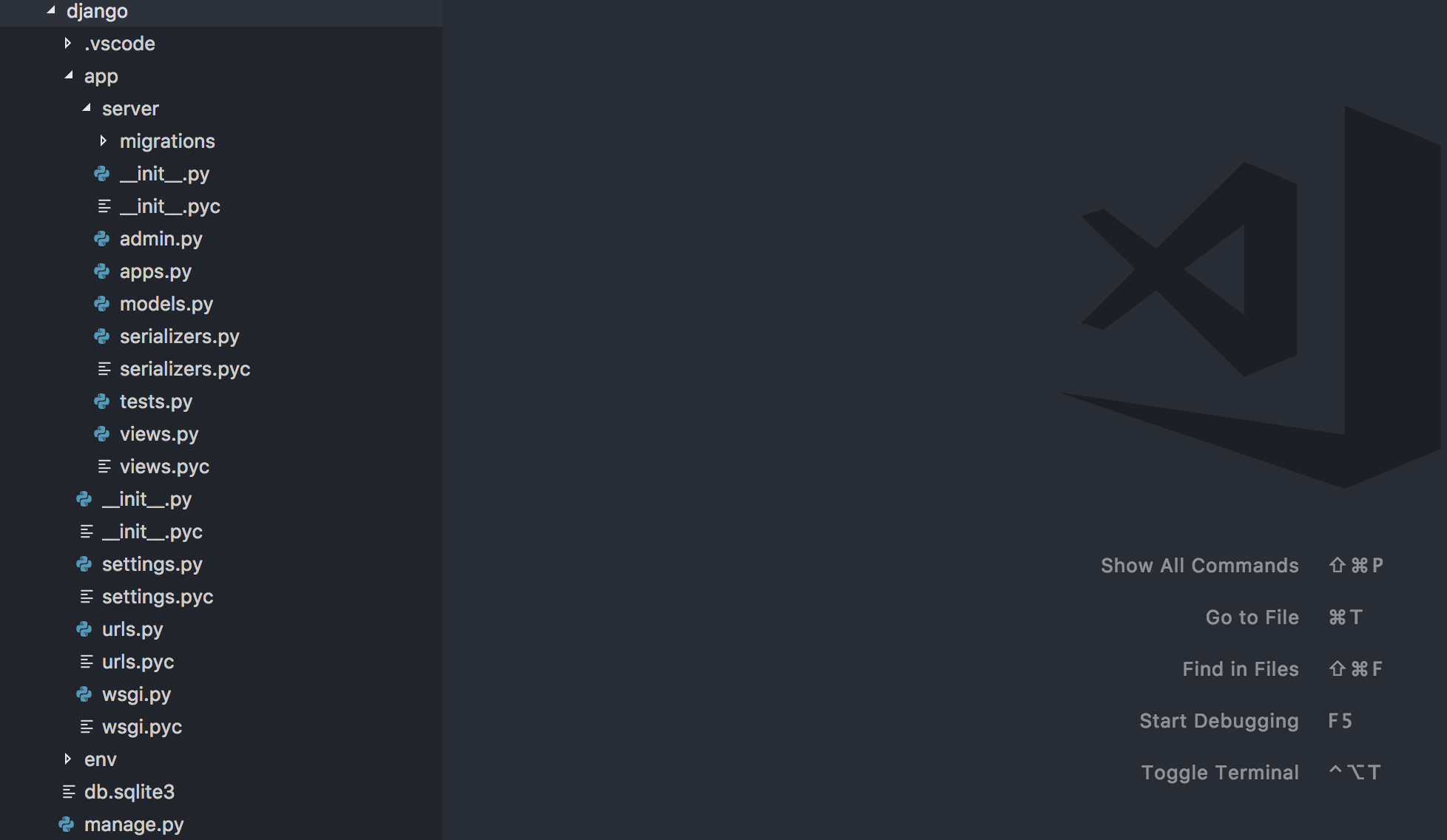Django JWT
In the root folder you will get a folder named servers in the servers folder you will get a folder named django . The structure of the folder is below

To start the server run the below command
python manage.py runserver 9000

All the routes are in app->urls.py file. You will get below routes in this file
# Auth Route
url(r'^api/secret/test', include(router.urls)),
# No Authertication required
url(r'^api/login', obtain_jwt_token),
url(r'^api/refresh', refresh_jwt_token),
url(r'^api/verify', verify_jwt_token),
We have given a user model you test it. Just check the app->server->serializer.py and the views app->server->views.py
serializers.py User Serializer below
class UserSerializer(serializers.HyperlinkedModelSerializer):
class Meta:
model = User
fields = ('url', 'username', 'email')
User Views we Have used Django default viewset app->server->views.py
class UserViewSet(viewsets.ModelViewSet):
"""
API endpoint that allows users to be viewed or edited.
"""
queryset = User.objects.all().order_by('-date_joined')
serializer_class = UserSerializer
MOdify all of these to your need.
Important Notice:
For testing django server you need to change a few code as we have tested the server for GET method. So in the root directory
isomorphic-servers/src/helpers/authHelper.js Replace the below code
return await SuperFetch.post('secret/test', { token })
With below code
return await SuperFetch.get('secret/test', { token })
Here post has been replaced with get .
Another important thing is understanding the below settings. which resides in isomorphic-servers/servers/django/app/settings.py path.
Here the below settings can be changed on your need
JWT_AUTH = {
'JWT_ENCODE_HANDLER':
'rest_framework_jwt.utils.jwt_encode_handler',
'JWT_DECODE_HANDLER':
'rest_framework_jwt.utils.jwt_decode_handler',
'JWT_PAYLOAD_HANDLER':
'rest_framework_jwt.utils.jwt_payload_handler',
'JWT_PAYLOAD_GET_USER_ID_HANDLER':
'rest_framework_jwt.utils.jwt_get_user_id_from_payload_handler',
'JWT_RESPONSE_PAYLOAD_HANDLER':
'rest_framework_jwt.utils.jwt_response_payload_handler',
'JWT_SECRET_KEY': 'secretKey',
'JWT_GET_USER_SECRET_KEY': None,
'JWT_PUBLIC_KEY': None,
'JWT_PRIVATE_KEY': None,
'JWT_ALGORITHM': 'HS256',
'JWT_VERIFY': True,
'JWT_VERIFY_EXPIRATION': True,
'JWT_LEEWAY': 0,
# 'JWT_EXPIRATION_DELTA': datetime.timedelta(seconds=300),
'JWT_AUDIENCE': None,
'JWT_ISSUER': None,
'JWT_ALLOW_REFRESH': False,
# 'JWT_REFRESH_EXPIRATION_DELTA': datetime.timedelta(days=7),
'JWT_AUTH_HEADER_PREFIX': 'Bearer',
'JWT_AUTH_COOKIE': None,
}
Here JWT_SECRET_KEY is the most important part. You have to use same secret key for both frontend and back end. The frontend config can be found in path isomorphic-servers/src/settings/index.js under below config
const jwtConfig = {
fetchUrl: '/api/',
secretKey: 'secretKey',
};